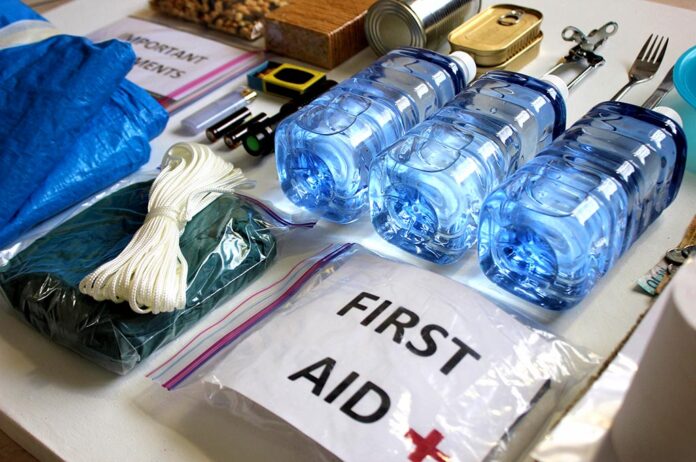Why should you be prepared for an emergency? FEMA (the Federal Emergency Management Agency) says that:
“Being prepared can reduce fear, anxiety, and losses that accompany disasters. People also can reduce the impact of disasters (flood proofing, elevating a home or moving a home out of harm’s way, and securing items that could shake loose in an earthquake) and sometimes avoid the danger completely.”
Emergencies can take many forms. In Tigard, we most frequently associate emergencies with large and rapid events like earthquakes, floods or wildfires, but the COVID-19 pandemic has shown that emergencies can affect us in new ways and for an extended time period. The impact of all types of emergencies can be lessened by thorough and thoughtful preparation.
When COVID-19 first struck with force we experienced shortages of many basic food and hygiene products and also saw our retail store infrastructure unimaginably stretched.
Preparedness is not a state that’s ever perfectly achieved, rather, it is a mindset and continual process. We can all help ourselves and our communities by being more prepared prior to an emergency. This article is an introduction to aspects of being prepared at your home or business. Future articles will talk in more depth about specific aspects of preparedness such as: power; sanitation; water supply; and pets.
Over the next 12 articles we’ll provide a short list of items to purchase or collect, plus things to do to help your family be prepared for an emergency. When we’re done, you’ll have a great start at being prepared. This preparedness calendar comes from the Washington County Office of Consolidated Emergency Management (ocem.org).
This article’s list focuses on a few shelf-stable items from the store plus several things to do:
Month 1 Preparedness List
Items to Purchase
- Water – At least 3 gallons per person, per day plus pets
- Hand-operated can opener
- Instant drinks (coffee, tea, powdered milk, powdered fruit drinks)
- 2 flashlights with extra batteries
Things To Do
- Make your family disaster preparedness plan
- Inventory disaster supplies already on hand, especially camping gear
- If you fill your own water containers, mark them with the date filled
- Date water/food containers if they are not dated
- Conduct a home hazard hunt
Rather than assembling emergency supplies all at one time, a better plan is to purchase those supplies gradually. This spreads both the cost and effort associated over a longer period of time.

Tigard CERT Inc. is a local non-profit organization allied with the City of Tigard that trains volunteers in basic emergency response and organizational skills following the Federal Emergency Management Agency model and guidelines for local Community Emergency Response Teams. Tigard CERT volunteers provide support during emergencies when our community’s professional emergency services teams may be overwhelmed by the situation. Tigard CERT also provides staff and support for community events such as the Tigard Balloon Festival, the City of Tigard Public Works Day, the Community Preparedness Fair, and other events. For more information about Tigard CERT, please visit our website at tigardcert.wordpress.com.




















